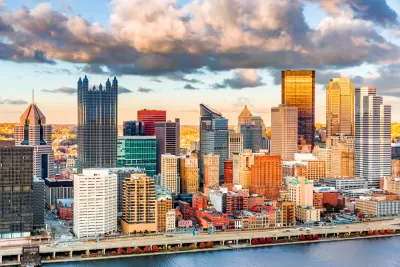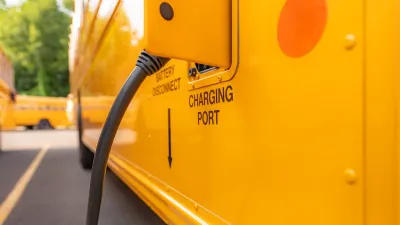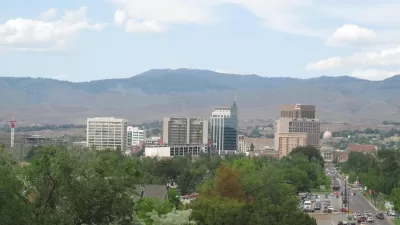In addition to reducing emissions, the agency officials hope the climate action plan will help increase ridership and boost their competitiveness when applying for federal transit funding.

The Pittsburgh Regional Transit agency has set a goal to reach net zero carbon emissions by 2045 as part of the city’s first climate action plan, according to 90.5 WESA, Pittsburgh’s NPR news station. “The agency plans to reduce the 104.5 million tons of carbon emissions it produces each year by expanding its electric bus fleet, purchasing light rail cars that use less electricity and switching to solar power to run their buildings,” writes Julia Fraser. It also aims to get more people to ride buses, both to reduce emissions and to keep their transit system solvent.
Increasing ridership is an ambitious goal, as transit ridership in both Pittsburgh and across the country dipped when the pandemic hit and has been slow to rebound. “Pittsburgh’s ridership only rebounded back to 64% of its pre-pandemic level for that week. And so far this year, fewer Pittsburghers have taken transit than in 2023, according to Pittsburgh Regional Transit data,” Fraser reports.
Buses are the biggest source of emissions for the agency and therefore the area where it can make the biggest impact. But with only nine electric buses (and 14 more on the way, according to the article) out of a fleet of 729 diesel vehicles, it will be a while before they reach their 100 percent electric goal, particularly given the challenges installing charging infrastructure and retraining mechanics, as well as growing pains the electric bus industry has faced lately. The city is also looking into hydrogen-cell-fueled buses as an alternative. It will also be expensive, as the agency already faces a “fiscal cliff” as federal pandemic relief money comes to an end this year. But just having a climate plan enables the agency to go after more money and stay competitive for current funding, Derek Dauphin, director of planning and service development at Pittsburgh Regional Transit, told 90.5 WESA.
FULL STORY: Pittsburgh Regional Transit climate plan aims to increase ridership, reduce emissions

Alabama: Trump Terminates Settlements for Black Communities Harmed By Raw Sewage
Trump deemed the landmark civil rights agreement “illegal DEI and environmental justice policy.”

Planetizen Federal Action Tracker
A weekly monitor of how Trump’s orders and actions are impacting planners and planning in America.

Why Should We Subsidize Public Transportation?
Many public transit agencies face financial stress due to rising costs, declining fare revenue, and declining subsidies. Transit advocates must provide a strong business case for increasing public transit funding.

Understanding Road Diets
An explainer from Momentum highlights the advantages of reducing vehicle lanes in favor of more bike, transit, and pedestrian infrastructure.

New California Law Regulates Warehouse Pollution
A new law tightens building and emissions regulations for large distribution warehouses to mitigate air pollution and traffic in surrounding communities.

Phoenix Announces Opening Date for Light Rail Extension
The South Central extension will connect South Phoenix to downtown and other major hubs starting on June 7.
Urban Design for Planners 1: Software Tools
This six-course series explores essential urban design concepts using open source software and equips planners with the tools they need to participate fully in the urban design process.
Planning for Universal Design
Learn the tools for implementing Universal Design in planning regulations.
Caltrans
Smith Gee Studio
Institute for Housing and Urban Development Studies (IHS)
City of Grandview
Harvard GSD Executive Education
Toledo-Lucas County Plan Commissions
Salt Lake City
NYU Wagner Graduate School of Public Service





























